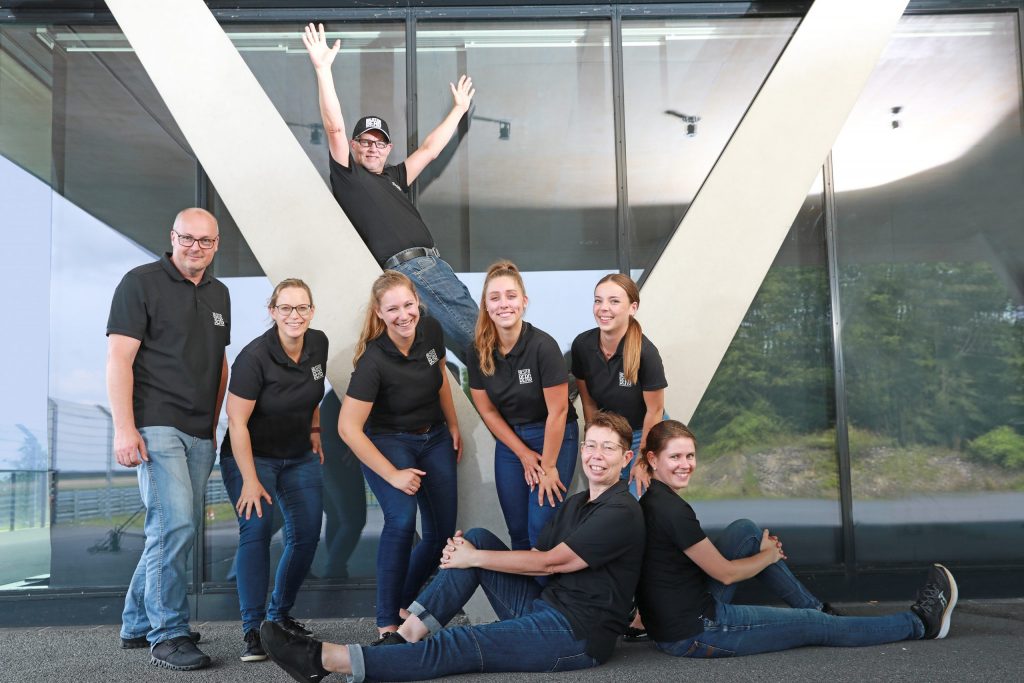
Women and motorsport
Since the beginning of the automobile, women have been involved in motorsport. The number of female racing drivers in well-known racing series is still comparatively low and even when one thinks of race tracks as a classic workplace, one does not primarily think of a workplace for women.
At BILSTER BERG, things look a little different. There are currently 25 permanent employees working in various areas, eight of whom are women. That is an impressive 32 %. There are even two trainees among the eight women.
Jorina Stütze, a second-year apprentice, had no contact with motorsport before her apprenticeship. Her partner had motivated the 21-year-old to apply at the BILSTER BERG. She says: “The enthusiasm for motorsport only developed through my work here at the BERG. In the meantime, I find it fascinating what drivers and cars achieve.” Julia-Sophie Fischer, on the other hand, grew up with cars through her father’s company. She feels most at home among cars, especially fast ones. So an apprenticeship at BILSTER BERG was an obvious choice.
Sabine Karusseit has been working at BILSTER BERG since the beginning and is head of sales and event management. She says: “With us, every event organiser has their own account manager whom they can contact at any time. With us, every customer should be able to concentrate fully on their event and not have to deal with minor details.” The likelihood of it being a female account manager is very high, because six women are regularly on duty here.
Unfortunately, the search for female Formula One drivers is currently in vain. However, two female drivers have competed in a Grand Prix in the past: The Italian Maria Teresa de Filippis was the first woman to start in a Formula One race at the 1958 Belgian Grand Prix and finished in tenth place. Lella Lombardi, also Italian, even managed to score half a World Championship point at the (aborted) Spanish Grand Prix in 1975, finishing sixth. She is thus the only female driver so far to finish in the points in a Formula One Grand Prix (and at the same time the first woman to take part in a race of the German Touring Car Championship).
In the meantime, there have also been more initiatives to actively promote women in motorsport for about a decade. Initiatives such as ‘FIA Girls on Track’ have been in place since 2018, the W-Series, the first women-only formula series, since 2019, and, since last year, Extreme E, where each team must consist of one man and one woman. And various trackday organisers now also offer the opportunity to book women’s stints in order to lower the inhibition threshold to get involved in motorsport. At the BILSTER BERG, too, of course.




